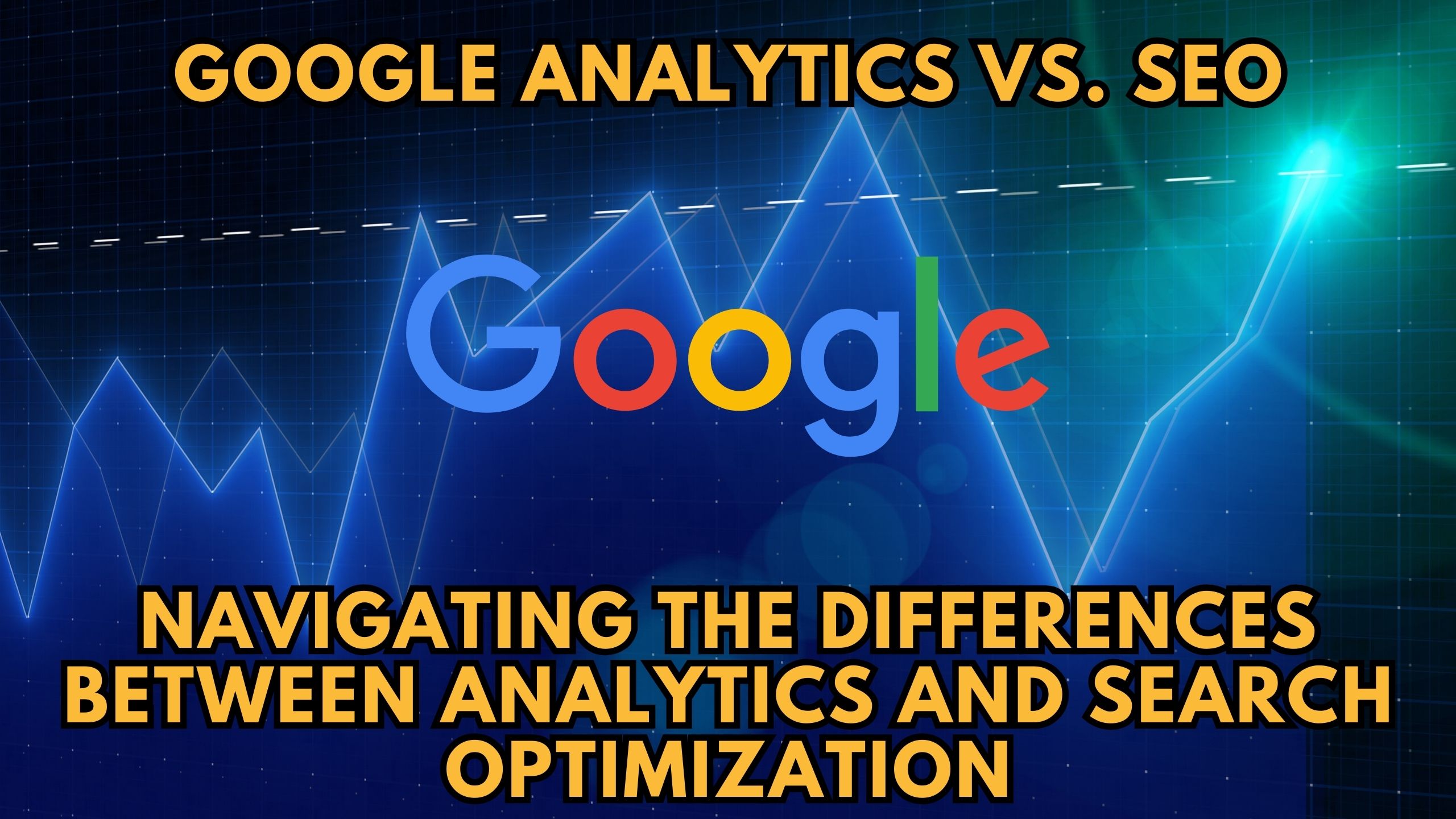Google Analytics vs. SEO: Navigating the Differences Between Analytics and Search Optimization
- Data as a Service (DaaS) Software Marketing & Analytics


Google Analytics vs. SEO: Navigating the Differences Between Analytics and Search Optimization
In the digital realm, mastering the intricacies of Google Analytics and Search Engine Optimization (SEO) is essential for online success. This blog will unravel the distinctions between these two pillars of the online world, providing insights to empower businesses. Additionally, we’ll explore five relevant SaaS products that complement and enhance these strategies.
Understanding Google Analytics
Google Analytics is the powerhouse that unravels the mysteries of website traffic. It provides granular insights into user behavior, traffic sources, and engagement metrics. For businesses, Google Analytics is indispensable in refining online strategies, understanding audience demographics, and optimizing website performance.
Decoding the Essence of SEO
On the other hand, Search Engine Optimization (SEO) is the art and science of enhancing a website’s visibility on search engines. From keyword optimization to content quality and backlink building, SEO aims to climb the search engine rankings. A well-executed SEO strategy ensures that a website appears prominently in relevant search results, driving organic traffic.
1. Analyzing User Behavior with Hotjar
Hotjar adds a visual layer to Google Analytics by providing heatmaps, session recordings, and user surveys. Understanding how users interact with a website’s elements helps businesses optimize layout, content, and calls to action, thereby improving the overall user experience.
2. Enhancing SEO with Moz
Moz is a comprehensive SEO tool that covers everything from keyword research to site audits. By leveraging Moz, businesses can track keyword rankings, analyze backlinks, and identify opportunities for improvement. Moz serves as a guiding compass for businesses navigating the intricate landscape of SEO.
3. Monitoring Social Media Impact with Hootsuite
In the realm of digital marketing, social media plays a pivotal role. Hootsuite allows businesses to manage and schedule social media posts seamlessly. By aligning social media efforts with SEO and analytics data, businesses can create a cohesive online presence.
4. A/B Testing with Optimizely
Optimizely empowers businesses to conduct A/B testing effortlessly. By experimenting with different versions of web pages, businesses can optimize for user engagement and conversions. This aligns with the insights gained from Google Analytics, creating a data-driven approach to website optimization.
5. Content Optimization with SEMrush
SEMrush is a versatile tool that aids businesses in optimizing their content for search engines. From keyword research to tracking competitors, SEMrush provides actionable insights to enhance a website’s SEO strategy. This synergy between Google Analytics and SEMrush ensures a holistic approach to online visibility.
Conclusion: Striking a Balance
In the digital landscape, Google Analytics and SEO are symbiotic. While Google Analytics dissects user behavior, SEO fine-tunes a website’s elements for optimal search engine performance. Striking a balance between these two pillars is crucial for a robust online presence.
Unlock the Power of SaaS with Subscribed.fyi
At Subscribed.fyi, we understand the challenges of navigating the SaaS landscape. Sign up today to unlock exclusive deals, streamline subscription management, and gain insights that propel your online strategies to new heights.
Relevant Links:





